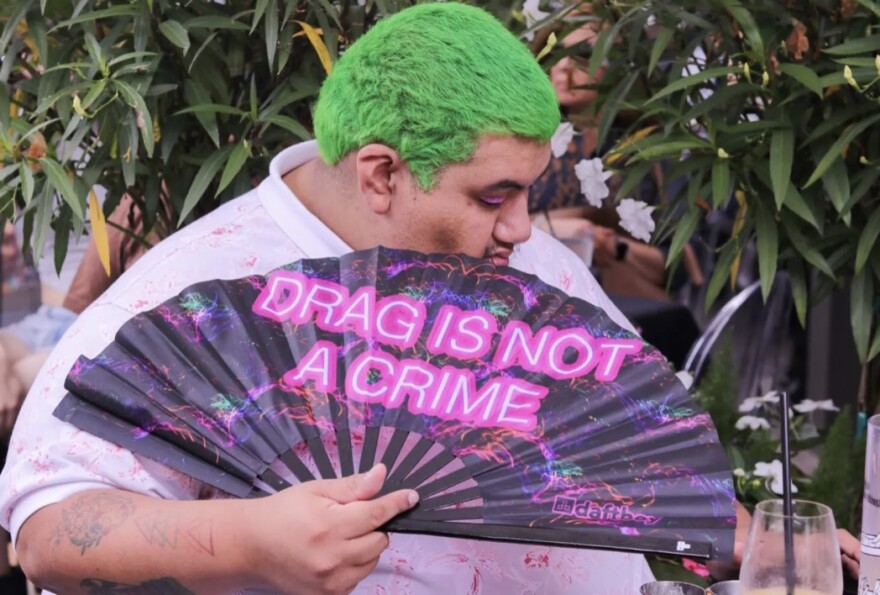A Houston judge heard arguments Monday in a federal lawsuit over recently passed Texas Senate Bill 12, which proponents say is meant to protect minors from sexually-oriented material. Plaintiffs in the lawsuit say the bill's language is vague and that the law targets drag shows.
Lawyers with the American Civil Liberties Union of Texas are representing five plaintiffs, including business owners who put on drag performances as well as community organizations such as the Woodlands Pride and Abilene Pride Alliance. They hope to receive a permanent injunction from Judge David Hittner blocking the law from going into effect on Sept. 1.
While the bill authored by State Senator Bryan Hughes of Mineola initially defined all drag performances as sexual in nature, the version of the bill that was eventually enrolled specifically criminalizes sexually explicit performances in front of minors. If found to be in violation of the law, business owners that host performances can receive up to a $10,000 fine and performers themselves can receive up to a year in jail in addition to a fine of $4,000.
The law defines "sexually explicit" as performances involving nudity or which "appeal to the prurient interest in sex."
Lawyers for the ACLU of Texas said they believe the law is not only ill-defined but that it also infringes upon the right to freedom of expression.
"We believe this is a textbook violation of the plaintiff's first amendment rights," said Brian Klosterboer, lead attorney for the plaintiffs. "This law threatens the LGBTQ+ community of Texas, but it also threatens to strip away the rights of all Texans: any artistic performance that could be considered ‘sexual' in any way could now be regulated and prohibited by this law on all public property or anywhere that a minor could possibly be present."
Lawyers for the Texas Attorney General's office said, since the law applies to "other sexually-oriented performances," it is not specifically discriminatory against drag shows. They also contend that the bill is not in opposition to freedom of expression ensured by the first amendment.
"Drag, in and of itself, is not inherently expressive," said Taylor Gifford, lead attorney for the Attorney General's office.
Several witnesses took the stand Monday, including several business owners, activists and one drag performer, all of whom said they believe the law would not only endanger businesses but also hamper the LGBTQIA+ population's freedom of expression and sense of community. They said the statute's language is so vague that it was difficult to understand what sorts of performances would be in violation, and as a result, businesses may be reluctant to host drag shows at all.
The state presented one witness: a psychiatrist who has worked with individuals who have been negatively impacted by exposure to sexually explicit content as children. However, he said none of them were exclusively related to witnessing drag performances. As a result, Judge Hittner dismissed the witness, saying his testimony did not have direct relevance to this case.
Throughout the first day of trial, witnesses were questioned about the nature of drag shows as well as specifics of the venues and content of performances, down to individual dance movements: the state asked one witness to demonstrate "twerking" from the stand.
"Drag is not inherently sexual, but a lot of people do view drag as inherently sexual," said drag artist Brigitte Bandit. "I believe the purpose of SB 12 is to push drag and queer artistry out of public spaces."
The trial continues Tuesday morning. Judge Hittner said he plans to issue a ruling as soon as possible before the law is set to go into effect Sept. 1.
Copyright 2023 Texas Public Radio. To see more, visit Texas Public Radio.


